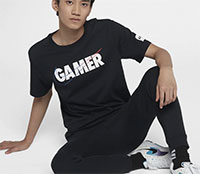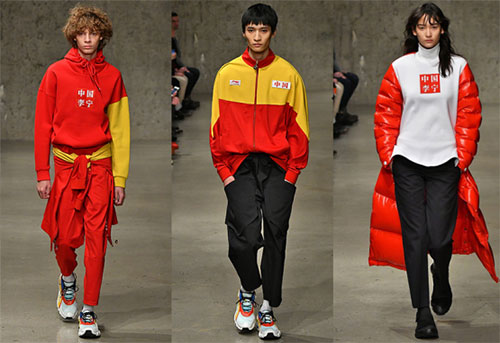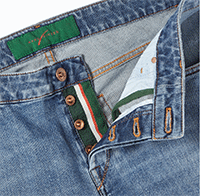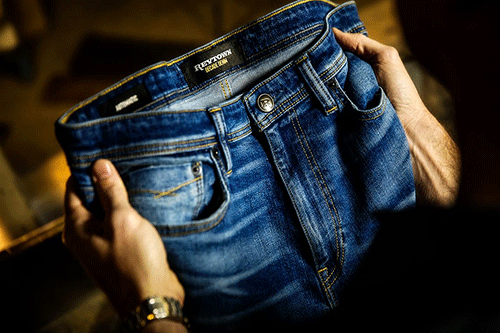FW
German fair organiser Panorama has launched a new pop up concept called Brand Village in which the company will exhibit a selection of brands in different cities in Germany at different times of the year. The group, which has just moved to Berlin Tempelhof, has changed its format with the launch of a new strategy. The first of these changes will take place in the January 2020 edition, where the group will have its 10,000 square meters’ space, Brand Avenue, where each brand will control its own space and focus on its products.
Through these changes, the group aims to bring fashion to the final customer. The movement is a part of the group’s strategy to reactivate the fair, which in recent editions has been losing strength. Panorama will not be the first fair with an itinerant concept. In its latest editions, Denim Première Vision has been held in different cities such as London or Milan.
Mango, along with 23 other companies from the textile and fashion sector, has signed the Fashion Pact, which aims to minimise the environmental impact of the textile and fashion industry by focusing on three key areas; climate, biodiversity and oceans. Signing the pact is part of Mango’s commitment to make environmental sustainability one of its core strategies. In this regard, the company carries out all its daily activities by adopting environment-friendly and sustainable development criteria in all areas of its business.
The Fashion Pact will set out actions to be carried out in the coming years through the agreements entered into, which will allow us to move forward collectively in favor of sustainability and to the benefit of the entire industry. The global pact commits all its signatories to work collectively to minimise the environmental impact of the textile and fashion industry by focusing on three key areas: fighting against climate change, preserving biodiversity and protect the oceans.
Karl Mayer invited leading global textile industrialists and international investors in Vietnamese textiles industry to participate in a joint exclusive recently. Around 90 participants from 13 countries attended the event. Most guests came from Vietnam, Korea, Taiwan and China. And some of them undertook the journey from Europe.
With exports worth $36.2 billion, 2018 was the most successful year for the Vietnamese textiles and clothing industries. Considering the trade war between China and the US, the year 2019 brought both chances and challenges for Vietnam. In the first six months, the sector’s exports to the US increased by 29 per cent. Sales revenues in the US market amounted to around $7 billion. This represents 46 per cent of the total revenues.
The country has high exports but low imports. To reduce the surplus, US President Donald Trump threatened to impose punitive tariffs on Vietnamese products at the G-20 Summit in June 2019. Additional levies would have a great impact on the Vietnamese economy, because the US is the most important market for this Asian country.
The government plans to amend the Micro, Small & Medium Enterprises Development Act to allow it to change the definition of a MSME to one based on turnover. This move could allow more businesses to register as MSMEs and be eligible for certain government schemes. The Union Government has been promoting the MSME sector and believes that it will lead the next phase of India’s economic growth.
The new government proposal would classify a MSME as a business with an annual turnover up to Rs 5 crore ($752,000) and businesses with up to Rs 75 crore annual turnover as a “small unit”. Businesses with up to Rs 250 crore in annual revenue would be classed as “medium scale” businesses. The MSME Ministry is currently finalising the proposal. As many handicraft, artisan, textiles, and fashion businesses’ revenue amounts to Rs 5 crore or less annually, the proposed definition could have a bearing on how such businesses are classified.
The United Nations Industrial Development Organisation plans to work 50 garment factories by 2021 to cut energy consumption by 20 to 30 per cent and water use by 10 per cent. For this, the organisation recommends factories to adopt new technologies and better training to make the industry more competitive, productive and efficient.
Hak Sokchea, National Project Coordinator of the organization says, improving resource efficiency in factories and industries could offset any expense caused by current uncertainty over the withdrawal of the European Union’s Everything-but-arms (EBA) privilege from Cambodia. It would also be better for humans and the environment.
Andrew Tey, Director of the Cambodia Garment Training Centre Institute (CGTI), believes productivity of these factories is improving every year with many factories now investing in new equipment and training staff to improve competitiveness and productivity. These factories by further improve their efficiency and productivity by as much as 65 to 75 percent through better training.
"Making history in the Chinese e-sports industry, global sportswear brand Nike signed a four-year exclusive apparel sponsorship deal with TJ Sports on February 28, 2019. The deal industry supply of sports apparels for China’s League of Legends Pro League (LPL), running until 2022. This deal includes supply of Nike branded clothes and shoes for all LPL players, coaches, referees, and team managers."
 Making history in the Chinese e-sports industry, global sportswear brand Nike signed a four-year exclusive apparel sponsorship deal with TJ Sports on February 28, 2019. The deal industry supply of sports apparels for China’s League of Legends Pro League (LPL), running until 2022. This deal includes supply of Nike branded clothes and shoes for all LPL players, coaches, referees, and team managers.
Making history in the Chinese e-sports industry, global sportswear brand Nike signed a four-year exclusive apparel sponsorship deal with TJ Sports on February 28, 2019. The deal industry supply of sports apparels for China’s League of Legends Pro League (LPL), running until 2022. This deal includes supply of Nike branded clothes and shoes for all LPL players, coaches, referees, and team managers.
Post the signing of the sponsorship deal, Nike unveiled its first LPL co-branded T-shirt to the public called ‘Gamer’. The brand unveiled all 16 LPL team uniforms, featuring a general “wide V style” with the Nike Swoosh and LPL logo in September. It also released an LPL co-branded streetwear apparel collection, including t-shirts, hoodies, and shoes.
Li-Ning stays away from e-sports sponsorship
Unlike Nike, Chinese sportswear brand Li-Ning has not shown any interest in sponsoring esports. The brand first entered the esports domain in October 2018 when it sponsored the Chinese esports organisation Edward Gaming’s (EDG) League of Legends team. The deal ended after Nike and LPL announced their sponsorship. In the next couple of months following the deal, Li-Ning sponsored multiple esports teams including Newbee, OG Happy, Hero, YTG, RNG’s Dota 2 team, and even the South Korean esports organisation Team Griffin, providing not only the team jerseys but also exclusive joint apparel and footwear lines.
entered the esports domain in October 2018 when it sponsored the Chinese esports organisation Edward Gaming’s (EDG) League of Legends team. The deal ended after Nike and LPL announced their sponsorship. In the next couple of months following the deal, Li-Ning sponsored multiple esports teams including Newbee, OG Happy, Hero, YTG, RNG’s Dota 2 team, and even the South Korean esports organisation Team Griffin, providing not only the team jerseys but also exclusive joint apparel and footwear lines.
Li-Ning also indirectly owns an LPL team called LNG Esports which was acquired by Viva China Sports in January. Viva China Sports is a sports subsidiary of Viva China Holdings Ltd., which is partly owned by Chinese entrepreneur and the founder of Li-Ning, Li Ning.
Competition for apparel sponsorship heats up
Nike and Li-Ning have both invested large amounts of capital in Esports. Nike has signed an apparel sponsorship with LPL valued at¥50M ($7.48M)a year, including cash and equivalent products. However, despite the financial terms of multiple undisclosed sponsorships and the acquisition of Snake Esports, the cost of building LNG Esports’ home venue for L-Ning is as high as is ¥30M ($4.36M).
Additionally, due to the exclusive apparel sponsorship between Nike and LPL, Li-Ning had no rights to provide team jerseys for LNG Esports, or sponsor any LPL teams. In order to deal with this issue, the brand has started endorsing EDG’s League of Legends players.
Two days after Nike launched its “Nike X LPL” co-branded uniforms, Li-Ning and League of Legends Champions Korea (LCK) team Team Griffin unveiled their co-branded team jerseys for the 2019 LoL World Championship. These jersey have Griffin’s sponsor logos and parent company STILL8’s logo printed on them.
Similarly, soon after Nike and LPL launched their first co-branded Gamer T-shirt, Li-Ning responded, by designing its esports apparel line under a general name: “中国选手” [English terms: Chinese Professional Player]. The company, which owns esports organisaation LNG Esports and sponsors multiple esports organisations and players, is focusing on the players.
On the other hand, Nike more likely wants to investigate what kind of positive characteristics gamers have, and justify video gaming to the public in a way that is not characterised as a negative habit or seen as shameful. Thus both these companies are focusing on the core value of e-sports; albeit in different ways.
 The average five-pocket jean is going through a transformation with denim brands and designers taking creativity to new levels through innovative fabrics and designs. Increasing competition from the athleisure category has made denim brands realise the need to innovate their offerings in order to stay relevant in a competitive market. As the chief industry advisor of the NPD Group noted earlier this year, women today want to wear more than just leggings and yoga pants. To inspire these women to buy new jeans, denim marketers need to find new ways to design their jeans and deliver products that appeal to their tastes.
The average five-pocket jean is going through a transformation with denim brands and designers taking creativity to new levels through innovative fabrics and designs. Increasing competition from the athleisure category has made denim brands realise the need to innovate their offerings in order to stay relevant in a competitive market. As the chief industry advisor of the NPD Group noted earlier this year, women today want to wear more than just leggings and yoga pants. To inspire these women to buy new jeans, denim marketers need to find new ways to design their jeans and deliver products that appeal to their tastes.
A recent NPD Group survey reveals 364 million pairs of women’s jeans were purchased in the US in the 12 months ending February 2019. Amongst all brands, Levi’s is still the most favorite for one-third consumers; followed by Lee, Wrangler, American Eagle, Old Navy, Gap, Calvin Klein and True Religion.
New styles at the New York Fashion Week
Denim was also the point of discussion at the New York Fashion Week’s Spring/Summer 2020 shows. At the show, the Brock Collection showcased its wide-leg denim jeans with light and airy gowns, while Rag & Bone’s introduced ultra-short denim skirts, tiny shorts, waistband-less jeans and a ragged-edged denim vest. Prabal Gurung went with denim work jackets, overalls and dresses. And Brandon Maxwell showed jeans with ripped knees and frayed bottoms, a classic denim shirt paired with leather pants, and a full-body look that paired a rolled-sleeve work shirt with matching deep blue jeans.
wide-leg denim jeans with light and airy gowns, while Rag & Bone’s introduced ultra-short denim skirts, tiny shorts, waistband-less jeans and a ragged-edged denim vest. Prabal Gurung went with denim work jackets, overalls and dresses. And Brandon Maxwell showed jeans with ripped knees and frayed bottoms, a classic denim shirt paired with leather pants, and a full-body look that paired a rolled-sleeve work shirt with matching deep blue jeans.
Unusual detailing fuels denim purchases
These shows also introduced new denim styles such as painted and sequined jeans and rompers that were showcased by the brand No Sesso at its runway show. Similarly, Alexander Wang exhibited denim shirts with leather collar and plackets, as well as blue jeans overlaid with leather and suede chaps. Kaimin showcased an adjustable-length denim skirt, jeans with metallic and embroidered appliques and denim bottoms that looked as if the pant legs were breaking away, leaving only tiny shorts. EDGII delivered extra wide-leg jeans, as well as bottoms with flyaway pant legs that split at the knee. And Alice + Olivia collaborated with designer Everard Best of the men’s wear labels Murder Bravado and Who Decides War, on a collection of hand-embroidered, dyed, and distressed denim. Designers are banking these innovative styles and unusual details to keep consumers coming back for more of what the denim category has to offer.
However, despite these innovations, designers need to remember that consumers still value traditional features in their denim. As a Monitor Research reveals, 9 out of 10 consumers rank comfort, fit, quality, durability and price as being the important parameters for their denim purchase decisions followed by style and color.
Indorama Ventures (IVL), a global chemical producer recently announced its commitment as part of the ‘New Plastics Econom’y to help create a world where plastic never becomes waste. The company is now accelerating its efforts in support of a very ambitious goal to increase recycled content volumes by at least 750,000 tonne, while also recently pledging $1.5 billion towards achieving this target by 2025.
Indorama Ventures is among 400 organisations committed to eliminate problematic plastic packaging, and increase the use of recycled plastic in packaging. The New Plastics Economy Global Commitment calls on companies and governments to innovate solutions enabling plastic to be 100 per cent reusable, recyclable, or compostable. The Ellen MacArthur Foundation and the UN Environment Programme have released the first New Plastics Economy Global Commitment progress report, which reveals signatories’ efforts to manage plastic waste and pollution.
IVL wishes to invest globally in the circular economy and in new technologies that can steer further its aspiration of being a world-class chemical company making great products for society. The Company announced a joint venture with Loop Industries aimed at commercialising their chemical recycling technology for sustainable PET packaging resin and Polyester fibers. In June 2018, the company also unveiled its partnership with Ioniqa Technologies, together with Unilever Europe, to unlock the potential of PET recycling with ground-breaking technology to pioneer a new approach to processing PET waste as renewed feedstock for virgin PET.
The Fashion Pact recently added 24 new members such as Auchan Retail, Bally, Calzedonia, Celio, Darmartex Group, Decathlon, Eralda, Etam Group, Farfetch, Mango, Gant or Geox. The new representatives met recently in Paris to discuss the plan that each member must carry out and translate sustainable commitments into practical and achievable goals like carbon footprint reduction and the use of water.
Fashion Pact is backed by the different actors in the industry, from luxury to retailers, sports and fast fashion. Among the companies are Inditex, Adidas, Bestseller, Burberry, Capri, Carrefour, Chanel, Fung Group, Gap, Giorgio Armani, H&M, Hermès, Kering, Nike, Nordstrom, Prada, PVH, Ruyi, Stella McCartney or Tapestry, among others.
The companies signed to work within the framework of the Science Based Targets (SBT) initiative, with scientifically measurable goals. This program is based on three points: stop climate change, restore biodiversity and protect the oceans.
Jeanologia and Browzwear are entering a partnership to ease out the denim making process and make it more efficient and sustainable. The software will allow the designers to visualise their creation with photographic-quality rendering of Jeanologia laser and eco-friendly finishes. Also, the instructions for production and finishing are included together so as to ensure that the results of the finished products look exactly like the digital one.
Jeanologia is a denim finishing technology specialist. Browzwear is a provider of 3D fashion design. This technology integration is just the first step in what Jeanologia and Browzwear envision as a partnership. Just as Jeanologia has been committed to reducing waste and prevent the contamination of the world’s precious water supply, Browzwear is keeping thousands and thousands of rejected samples and unsold styles out of landfills. At the same time, both want to encourage experimentation and creativity, and through this partnership, is confident designers will find freedom along with responsibility.
Browzwear’s pioneering 3D solutions for apparel design, development and merchandising are the key to a successful digital product lifecycle. Through the power of true-to-life 3 D, designers, developers, production and marketing can now collaborate effectively to get creative products to market faster than before. With Browzwear, brands and retailers around the world can connect people and processes, reduce iterations and samples and merchandise garments even before they are made.












